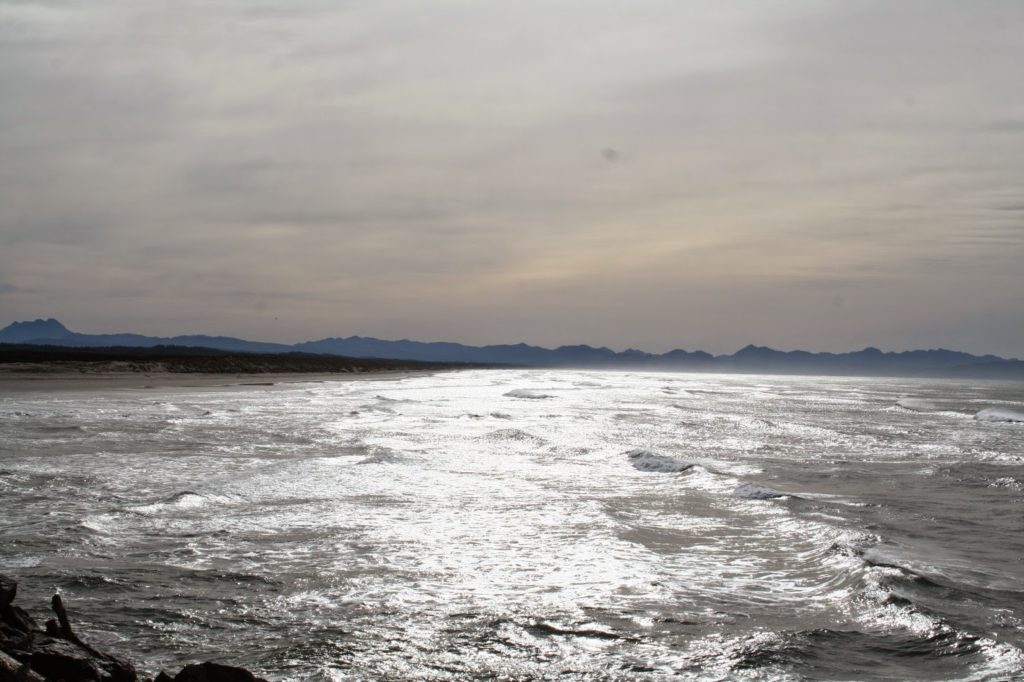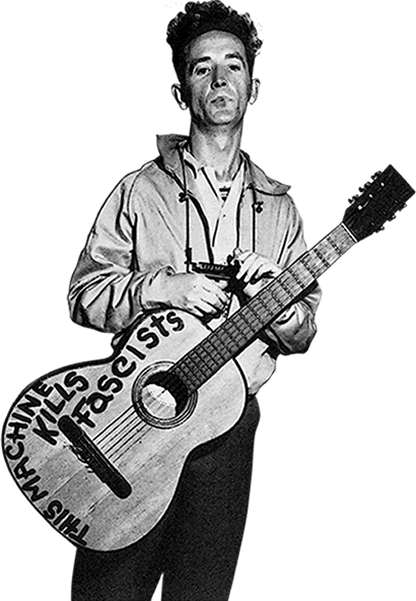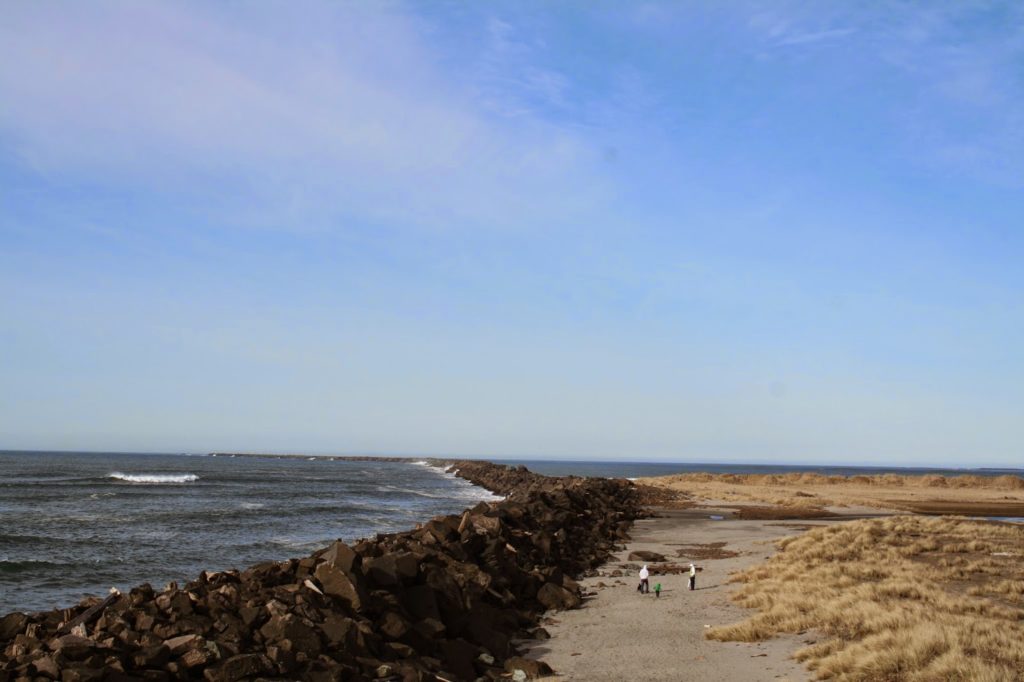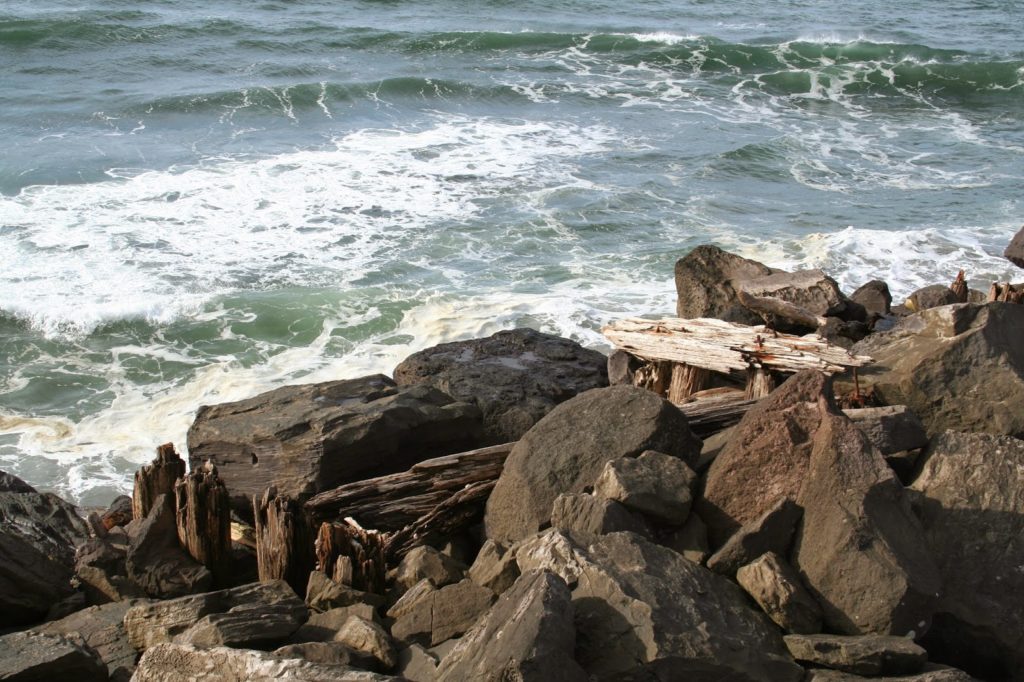On our recent trip with my brother’s family, we made an excursion one morning out to the mouth of the Columbia River. As we climbed up the viewing platform and took in the view around us, I was struck not only by the vast expanse from where we stood to the Washington shoreline, but by how profoundly steeped in history this place is. I thought of all the accounts I had read of the Lewis and Clark expedition and their reaction to reaching the Pacific Ocean, “Ocian in view! O! the joy,” (which was actually written prematurely as they reached the estuary, but that goes to show just how exciting it was). I thought of the many tragic tales of shipwrecks in “The Graveyard of the Pacific.” I thought of the complex relationship between people and the this river; of travel, trade, salmon and dams, and this led me to Woody Guthrie’s Columbia River ballads. In 1941, he was hired on by the federal government to travel along the river for a month and write folk songs that they hoped would increase public support for the construction of hydroelectric dams. This is interesting, because when I think of Woody Guthrie, a labor movement hero with “This Machine Kills Fascists” written on his guitar, hopping trains and inspiring the downtrodden to stand up for their rights is what comes to mind.
That’s right. This guy.
However, at a time when living conditions and poverty for the common person were a pressing issue that Guthrie saw plenty of, electricity and jobs were a concrete solution, and harnessing the Columbia to assist in bringing that about was something he could get behind wholeheartedly. Still, he did it on his own terms, throwing impromptu concerts for blue-collar workers in small towns, but flat refusing to play the songs at a chamber of commerce function. Putting my feelings about ecology, dams, and the drowning of Celilo Falls aside, I think Guthrie’s awe of the Columbia and hope for improving quality of life for the common, working class person makes these songs an important part of our collective story.
“There’s a great and peaceful river in a land that’s fair to see
Where the Douglas-fir tree whispers to the snow-capped mountain breeze
Cliffs of solid granite and the valley’s always green
This is just as close to heaven as my traveling feet have been
Roll, Columbia, won’t you roll, roll, roll
Roll, Columbia, won’t you roll, roll, roll
Stand upon her timbered mountain, look across her silver strand
See the crops and orchards springing to the touch of nature’s hand
And it’s further up the river where your eye will meet the skies
Where you’ll see the steel and concrete of the big Grand Coulee rise
See the crops and orchards springing to the touch of nature’s hand
And it’s further up the river where your eye will meet the skies
Where you’ll see the steel and concrete of the big Grand Coulee rise
Roll, Columbia, won’t you roll, roll, roll
Roll, Columbia, won’t you roll, roll, roll.”
~Woody Guthrie, from “Roll, Columbia, Roll.”
“Green Douglas firs where the waters cut through.
Down her wild mountains and canyons she flew.
Canadian Northwest to the ocean so blue,
Roll on, Columbia, roll on!
Roll on, Columbia, roll on.
Roll on, Columbia, roll on.
Your power is turning our darkness to dawn,
Roll on, Columbia, roll on.
Roll on, Columbia, roll on.
Your power is turning our darkness to dawn,
Roll on, Columbia, roll on.
Other great rivers add power to you,
Yakima, Snake and the Klickitat, too,
Sandy Willamette and Hood River, too;
Roll on, Columbia, roll on.”
Yakima, Snake and the Klickitat, too,
Sandy Willamette and Hood River, too;
Roll on, Columbia, roll on.”
~Woody Guthrie, from “Roll On Columbia”
Here’s a great NPR story by Jeff Brady from “All Things Considered”:




Leave a Reply